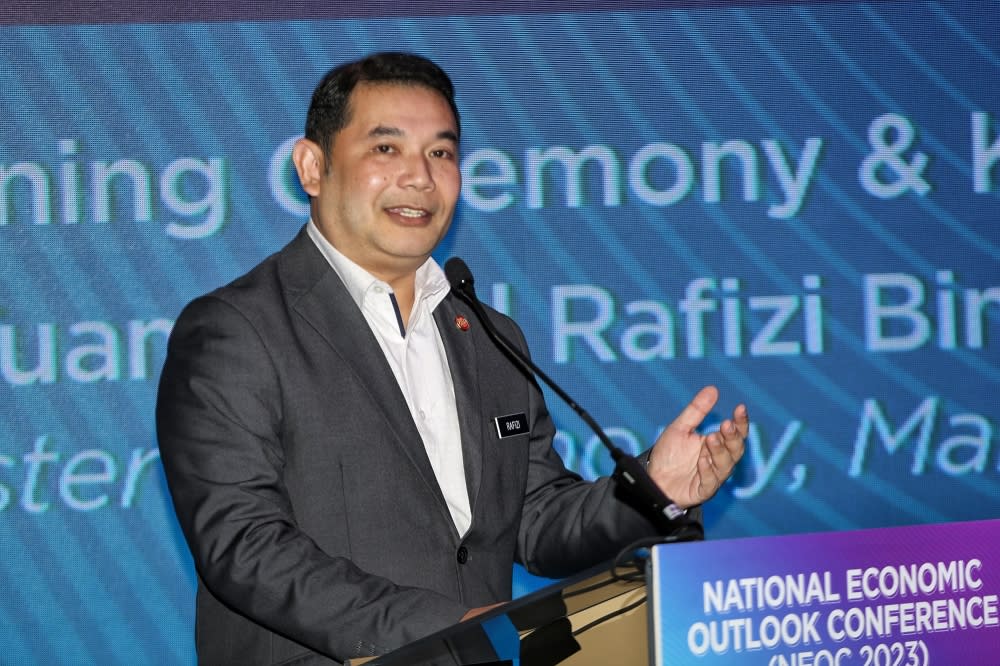Rafizi: To address low median salary, White Paper on progressive wage to be presented in Parliament this week

KUALA LUMPUR, Nov 27 — Economy Minister Rafizi Ramli today said that the progressive wage policy is slated to be presented to Parliament as a White Paper this week.
Expressing concern, he highlighted that the national median wage is a mere RM11 above the poverty line.
“I will present the progressive wage policy white paper this Thursday in Parliament.
“The purpose is to bring the focus of the whole country not only the government but also parliamentarians, the economy and the whole people to understand the situation of the salary problem in this country,” he said during his speech at the Malaysian Institute of Economic Research’s (Mier) National Economic Outlook Conference here.
He said that the national median wage, which is just slightly above the poverty line, was further complicated by a significant portion of subordinate workers being made up of foreign labour.
He added that despite recent increases in the minimum wage for unskilled workers, the benefits often disproportionately go to foreign workers at the bottom of the wage scale.
Addressing the unique challenges posed by the minimum wage policies, Rafizi noted that while the salaries of unskilled workers have seen some improvement, young workers entering the job market and semi-skilled workers with five to 10 years of experience face difficulties in securing wage increases.
“So, that’s why we have a situation where our median salary is only RM2,600 which is only RM11 higher than the family poverty line, which is RM2,589.
“Hence, the government sees the need to combine the minimum wage policy, which safeguards the wages of subordinate workers, with another policy aimed at promoting and facilitating wage growth for groups not covered by the minimum wage regulations,” he said.
Rafizi emphasised that the progressive wage policy is viewed as a catalyst for economic growth, acknowledging that higher salaries contribute to increased productivity.
“Motivated employees, enhanced skills, and the necessity for more efficient operations are expected outcomes of improved wages.
“The government envisions the progressive wage as a strategy that simultaneously benefits both employers and employees,” he said.
He added that this aligned with the government’s focus on the five high-growth and high-value sectors identified in the mid-term review, aiming to create a larger proportion of technological-frontier jobs.



